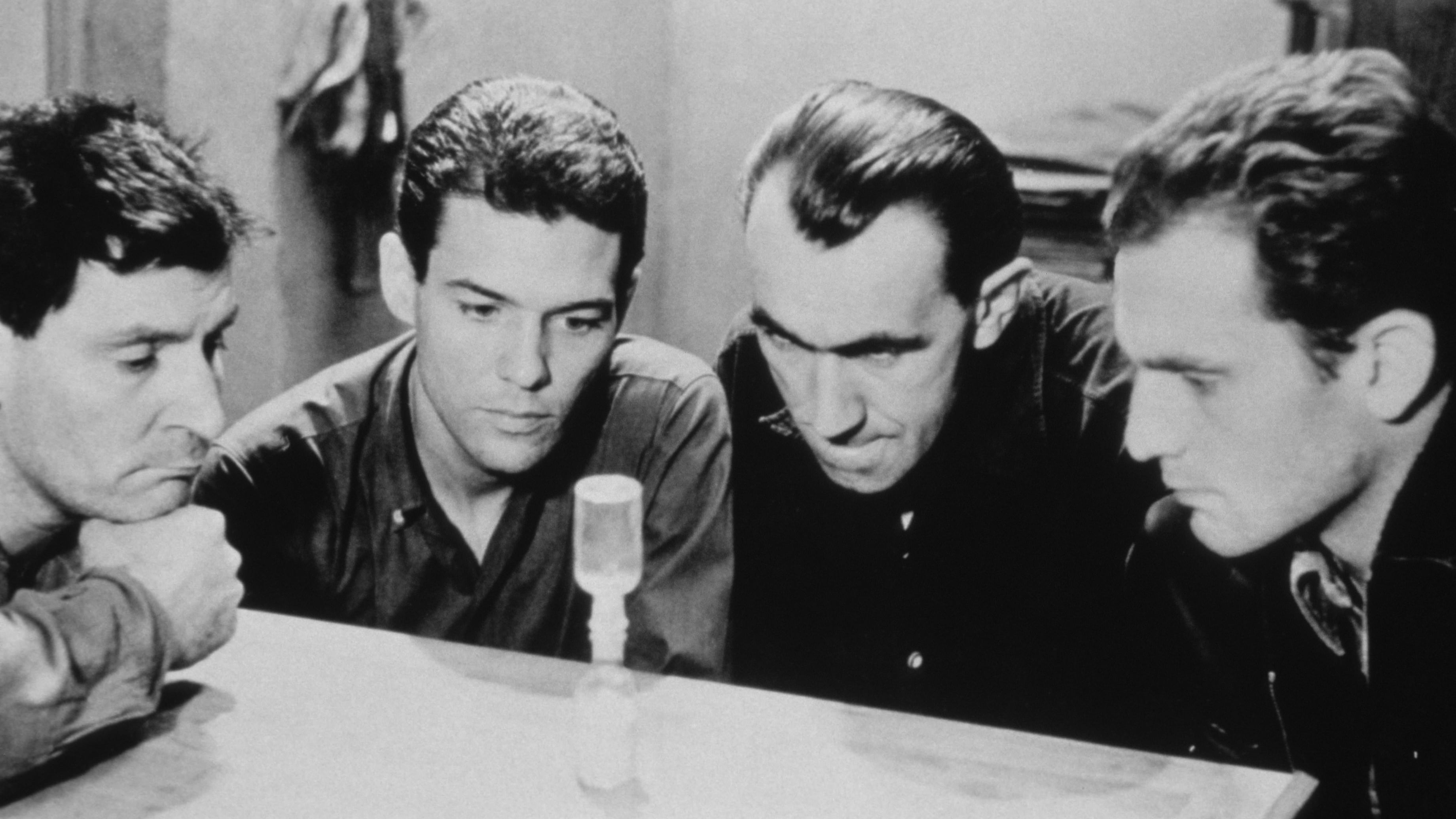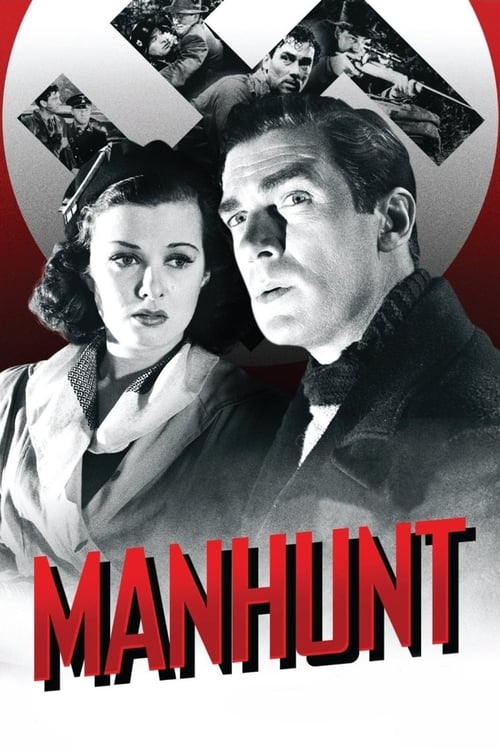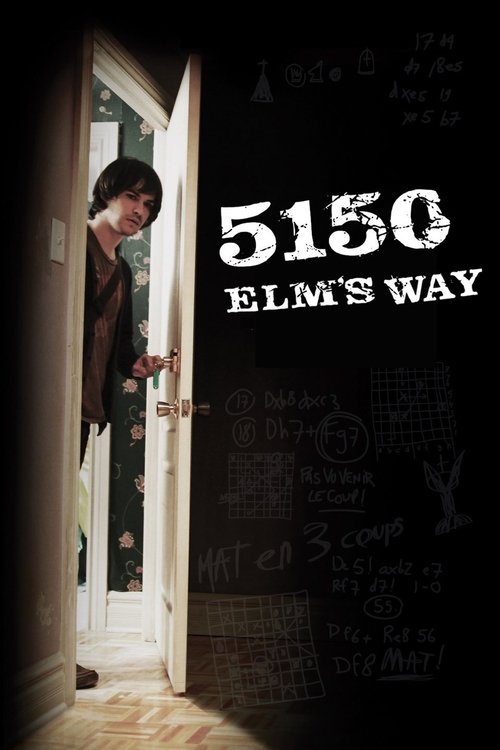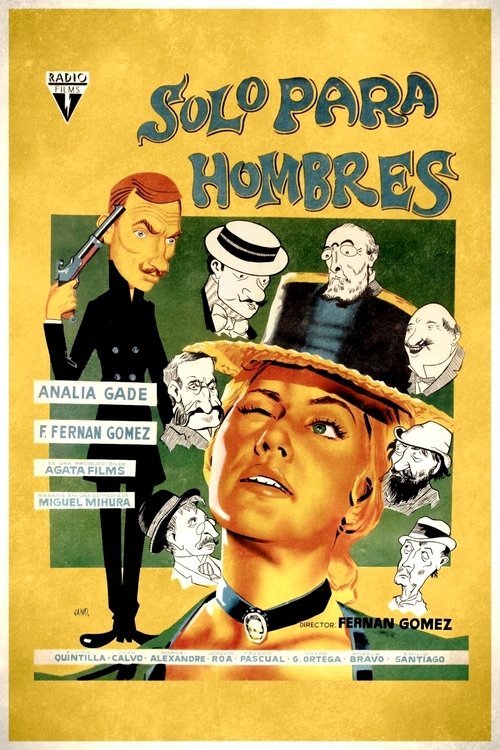
1960
Le Trou
Drama, Thriller, Crime
9.0
User Score
551 Votes
Status
Released
Language
fr
Budget
$0
Production
Filmsonor, Play Art
Overview
Four prison inmates have been hatching a plan to literally dig out of jail when another prisoner, Claude Gaspard, is moved into their cell. They take a risk and share their plan with the newcomer. Over the course of three days, the prisoners and friends break through the concrete floor using a bed post and begin to make their way through the sewer system – yet their escape is anything but assured.
Review

John Chard
9.0
The 1947 Escape Attempt At La Sante Prison.
Le Trou (The Hole) is directed by Jacques Becker and adapted to screenplay by Becker, Jose Giovani and Jean Aurel from Giovani’s own novel. It stars Michel Constantin, Jean Keraudy, Philippe Leroy, Raymond Meunier, Marc Michel and Jean-Paul Coquelin.
Jacques Becker’s last film before he would pass away shortly after the film’s completion, is a tightly wound prison procedural that deals in grim realism and claustrophobic sparsity. There’s no prison movie clichés here, there’s no sadistic prison staff, no Mr. Big who is in with the wardens and demands money with menace, and no rapists hovering about the place to seize by force and break the last inch of spirit of the victim, this is as pure and unfussily raw as it gets.
Based on a real escape attempt at La Sante Prison in 1947, story has four men in a cell plotting to escape via digging a hole in their cell. When construction work within the prison means a number of prisoners have to be relocated, the four men are a bit perturbed to find they have another inmate thrust into their already overcrowded cell. While of course there’s the small matter of the escape attempt that’s planned, will they be able to trust the newcomer? Will he join in and help? Pertinent questions hang heavy in the sweaty air.
Once Claude Gaspard (Michel) arrives in the cell, the narrative initially operates on a cat and mouse basis as the men sound out the newcomer. There’s no histrionics, no threats of violence, an enforcement of machismo to intimidate the new cellmate, just human interaction with viable concerns. Much of these passages pulse with atmosphere as the men talk in hushed tones, or just exchange glances, and then once an accord is reached, all parties are comfortable with each other, it’s time to put the escape plan into action.
What follows is quite simply engrossing suspense as Becker deals in long takes of silence punctuated by animal strength as the men pound on concrete with metal. The camera stays static, filming as if in real time, the sound department ramp up the volume to splinter the ears. We observe as the men fashion devices to aid their escape and to remain undetected, some of it genius in its simplicity. And all the while there is the feeling of trust, a bond between the incarcerated males, where the two lead off men are entrusted to go out and beyond the bowels of the prison, working tirelessly in charting the course through a maze of murky masonry, and to then return back to “HQ” for some rest and updates of the progress…
The use of non professional actors works brilliantly, adding further realism to the story, with one of them, Jean Keraudy, a bona fide prisoner from the actual event back in 1947. There’s no music here, it isn’t needed to emphasise or manipulate a scene, none more so with the denouement, a closure of some emotional magnitude, and once again it’s without histrionics, and once again it works brilliantly. 9/10
Read More felixxx999
8.0
This week's Noir of the Week is Le Trou (1960) directed by Jacques Becker. The film was called The Night Watch when released in the US in 1960.
The 2 ½ hour prison escape film, like Rififi, utilizes long, unbroken, often dialogue-free shots to dramatize the simple story of a group of prisoners attempting an ambitious escape from prison. Le Trou is shot in black and white and is totally without soundtrack music until the very end.
The film begins with one of the escapees, now outside the Santé Prison walls introducing the story. The film then flashes back to the Paris prison in 1947.
We’re then introduced to a young man Claude Gaspard. He’s put into a very small cell with four other inmates. There he meets the charming, always smiling Volsselin, nicknamed Monseigneur. Also in the cell are fellow inmates Roland Darbant, the man who introduced the film, Geo Cassid, and Manu Borelli.
The men work in their cell assembling cardboard boxes. Gaspard finds out that the men in his cell all eat well from care packages from the outside and all are close friends. What he doesn’t realize is that the men are working on escaping. While picking up a care package filled with bread, butter, saugage, smoked fish and rice pudding, the men discuss whether the should tell the new guy about their prison escape plans. They eventually take Gaspard into their confidence and being the long task of breaking the floor.
Slowly, in real time, the men chip away at the concrete floor that leads to a sewer tunnel.
The film lacks most prison film clichés. There are no sadistic prison guards, and all the prisoners seem like regular guys. Director Becker, who died shortly after the film was completed, used unprofessional actors including Jean Keraudy who was an actual participant in the escape attempt in 1947.
Given the film takes place in only three days, the sense of overwhelming tenacity shown by the prisoners is an astounding piece of filmmaking. The film has a number of memorable scenes, including the noisy breaking of the concrete floor with one of the bed legs –in real time- while another prisoner looks out the peep hole using a spy glass made from a tooth brush and a broken piece of mirror. Watching the scene draws you in an even makes you feel like a participant in the hacking, sawing and picking.
I won’t give away the ending or any of the interesting plot twists, but let’s just say there’s a heart-breaking double cross involved in a very un-Hollywood finish. Young Gaspard has to bear the brunt of an ironic plot-twist at the end. The film is a great prison escape film not to be mistaken for the French New Wave happening at the same time.
Written by Steve-O
Read More 



